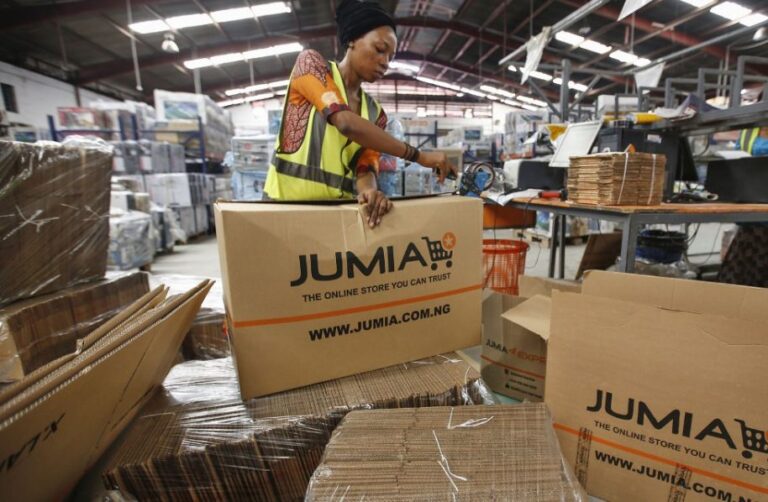Once considered beyond the reach of digital retail, Nigeria’s rural communities are now becoming the new growth frontier for e-commerce—and Jumia is leading the charge.
The company has unveiled the second edition of its “E-Commerce in Rural Areas” report, revealing how digital trade is reshaping local economies, empowering entrepreneurs, and bridging Nigeria’s widening digital divide.
Held at Jumia’s Lagos headquarters, the report launch drew an audience of business leaders, logistics partners, government officials, and journalists—each witnessing firsthand how technology is transforming markets once dominated by informal trading.
Rural Nigeria: The New Growth Engine
According to Jumia’s findings, nearly half of all orders on its platform now come from rural and semi-urban locations—a significant leap that signals deepening digital inclusion outside Nigeria’s major cities.
From Gaya in Kano to Wurukum in Benue, Ekpoma-Eguare in Edo, and Owerri in Imo, local economies are increasingly being revitalized by the convenience of online shopping. Categories such as phones, beauty products, home essentials, and men’s fashion have seen the sharpest growth, revealing that rural consumers crave the same convenience and quality urban shoppers enjoy.
This expansion is backed by infrastructure. Over the past year alone, Jumia established more than 350 pickup stations across hundreds of towns and partnered with 67 logistics providers, enabling last-mile delivery to communities previously excluded from the digital marketplace.
A Surge in Orders and Trust
The company’s Q2 2025 performance echoes this momentum, recording a 25% rise in orders and a 36% increase in Gross Merchandise Value (GMV) in Nigeria. These numbers underscore the growing trust among consumers and vendors who now view digital platforms as reliable trade channels.
“Our mission has always been to make everyday life easier for Nigerians, regardless of where they live,” said Temidayo Ojo, Jumia Nigeria’s Chief Executive Officer. “This report shows that digital commerce is more than convenience—it’s a catalyst for empowerment and small business growth.”
Community Networks Driving Digital Inclusion
At the heart of this progress lies JForce, Jumia’s vast community-based sales and marketing network. With over 32,000 active agents nationwide, JForce agents serve as the human bridge between digital platforms and local consumers—educating first-time buyers, assisting with online orders, and promoting trust in e-commerce.
For many of these agents—especially in underserved areas—the program represents more than just advocacy; it’s a source of livelihood. By linking communities to the digital economy, JForce is helping thousands of Nigerians generate income through micro-entrepreneurship.
Technology Meets Opportunity
Jumia’s latest report paints a broader picture of how innovation, logistics, and digital payments are converging to create a more inclusive Nigerian economy. With every new pickup station and delivery route, the company is stitching together rural and urban markets, giving local artisans, farmers, and traders new pathways to sell and source products.
Now in its 13th year of operations, Jumia’s impact extends far beyond sales metrics. It’s redefining access—turning remote communities into active participants in the country’s digital transformation.
As CEO Ojo concluded, “Our goal is not just growth, but shared prosperity. We want a future where no Nigerian community is left behind in the digital revolution.”
The Bigger Picture
Jumia’s journey illustrates a pivotal shift in Africa’s e-commerce narrative. What began as an urban convenience is fast becoming a tool for economic empowerment, reshaping how millions live, earn, and connect.
And if current trends continue, rural Nigeria could soon become the heartbeat of the nation’s digital economy—powered by connectivity, community, and commerce.

